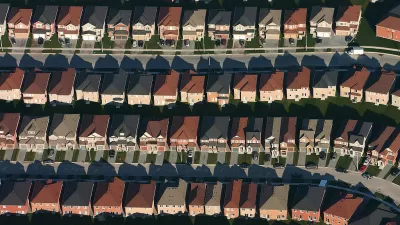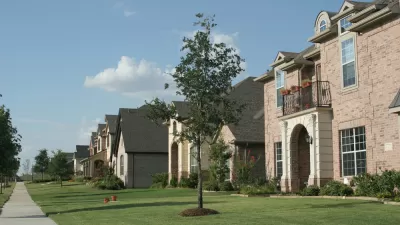Observers have anxiously wondered what will happen to America's urban revival as Millennials start families and seek the types of amenities more readily found in the suburbs. Relax, says Shane Phillips, cities will be fine and suburbs will be better.

Countless observers have raised doubts about the durability of America's urban revival as aging Millennials seek the amenities (bigger homes, good schools, affordable neighborhoods) that attracted their parents and grandparents to the suburbs.
"But we should stop worrying," says Phillips. "Some young families are going to leave the city, and not only is it not going to be as bad for cities as people think, it's probably going to be great for America. Cities are already the most productive places on the planet and the primary exporters of intellectual goods; why not embrace the export of urbanism, too?"
Phillips bases his entreaty to relax around two central arguments: 1) "there's absolutely no reason to believe that the next generation won't be able to replace Millennials that decide to decamp to the suburbs," and 2) "sending some newly-minted urbanites back into the suburbs from whence they came could be just what the suburbs need."
"Millennials may have saved cities, and they might just save the suburbs too," he concludes.
FULL STORY: Many Millennials Will Leave Cities, And That's Okay

Trump Administration Could Effectively End Housing Voucher Program
Federal officials are eyeing major cuts to the Section 8 program that helps millions of low-income households pay rent.

Planetizen Federal Action Tracker
A weekly monitor of how Trump’s orders and actions are impacting planners and planning in America.

Ken Jennings Launches Transit Web Series
The Jeopardy champ wants you to ride public transit.

California Invests Additional $5M in Electric School Buses
The state wants to electrify all of its school bus fleets by 2035.

Austin Launches $2M Homelessness Prevention Fund
A new grant program from the city’s Homeless Strategy Office will fund rental assistance and supportive services.

Alabama School Forestry Initiative Brings Trees to Schoolyards
Trees can improve physical and mental health for students and commnity members.
Urban Design for Planners 1: Software Tools
This six-course series explores essential urban design concepts using open source software and equips planners with the tools they need to participate fully in the urban design process.
Planning for Universal Design
Learn the tools for implementing Universal Design in planning regulations.
Ada County Highway District
Clanton & Associates, Inc.
Jessamine County Fiscal Court
Institute for Housing and Urban Development Studies (IHS)
City of Grandview
Harvard GSD Executive Education
Toledo-Lucas County Plan Commissions
Salt Lake City
NYU Wagner Graduate School of Public Service




























